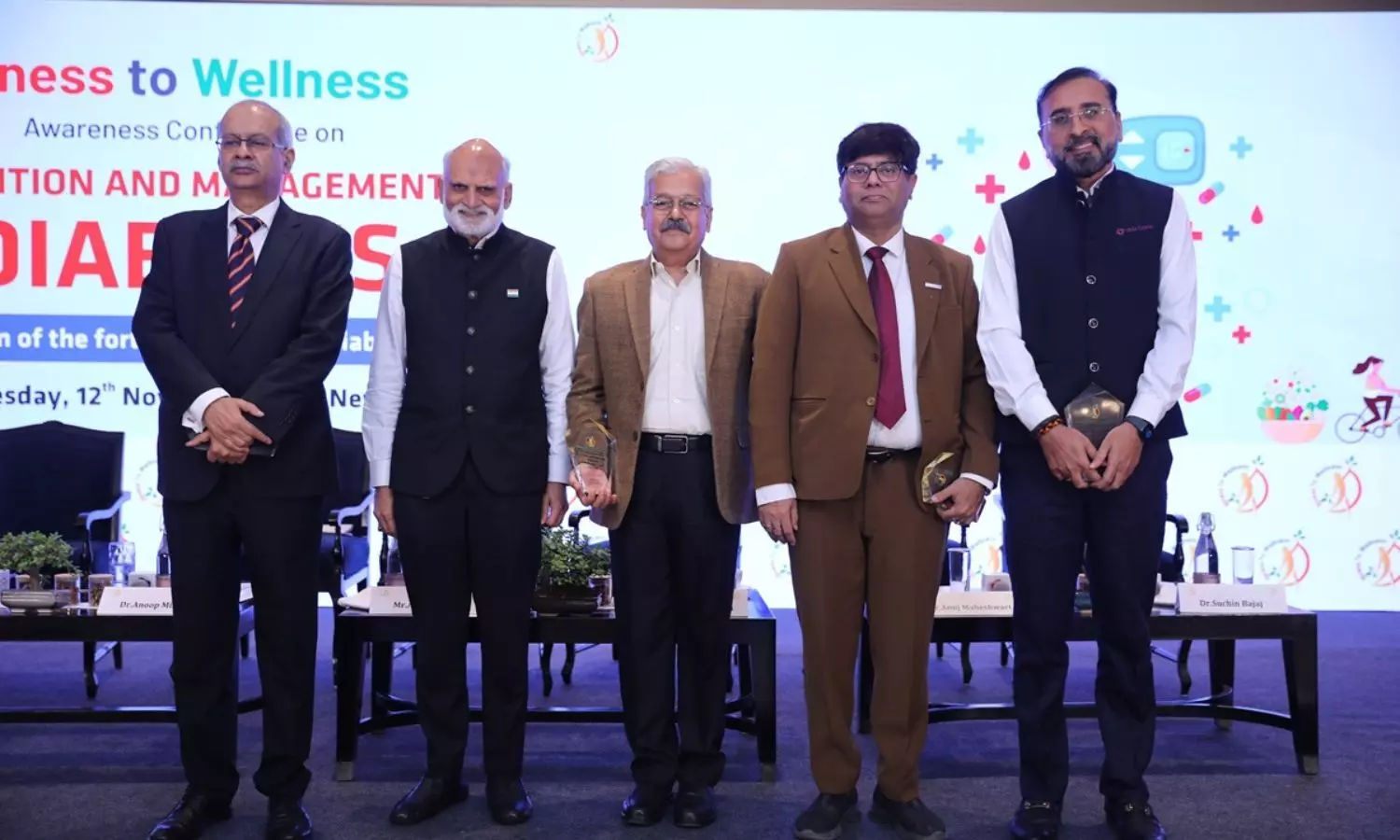Experts Call for Stronger Preventive Action Against Rising Diabetes in India

New Delhi : Diabetes is now one of India’s biggest health problems, with experts warning of a growing crisis caused by high blood pressure, belly fat, and inactive lifestyles.
With nearly 90 million adults affected, India now ranks as the world’s second-largest diabetic population. Speaking at the Illness to Wellness Awareness Conference on “Prevention and Management of Diabetes,” organised in New Delhi ahead of World Diabetes Day 2025.
Mr Rajesh Bhushan, Former Secretary, Ministry of Health and Family Welfare, Government of India, and Chairperson, Governing Council, Illness to Wellness Foundation, stressed that early screening, timely detection, and adherence to treatment protocols must become national priorities.
He urged both central and state governments to strengthen systematic screening and preventive care for non-communicable diseases like diabetes.
The conference, organised by the Illness to Wellness Foundation, focused on diabetes prevention, early diagnosis, and management across various age and gender groups under the theme “Diabetes Across Life Stages.”
It gathered medical professionals, public health leaders, and policymakers to promote a unified national approach to preventive healthcare.
Welcoming participants, Mr Anil Rajput, Chairperson, Advisory Council, Illness to Wellness Foundation, said that diabetes can be managed, delayed, or even prevented through consistent lifestyle choices.
He emphasized India’s traditional wellness practices such as Yoga, Surya Namaskar, and Pranayama, which help regulate insulin, improve metabolism, and reduce stress. He reiterated the foundation’s mission to educate and empower individuals toward preventive and holistic living.
Highlighting a shift in diabetes management, Padma Shri Dr Anoop Misra, Chairman, Fortis-C-DOC Centre of Excellence for Diabetes, Metabolic Diseases and Endocrinology, noted that the condition cannot be managed by targeting blood sugar alone.
He said that fat control, cholesterol regulation, and muscle strength are equally important. Dr Misra particularly emphasized strength training for women, explaining that physical exercise beyond walking is essential to build cardiorespiratory fitness and prevent complications.
Dr Ashok Kumar, Director, Atal Bihari Vajpayee Institute of Medical Sciences and Dr Ram Manohar Lohia Hospital, Ministry of Health and Family Welfare, Government of India, drew attention to diabetes in women, especially gestational diabetes.
He highlighted the connection between blood sugar levels and pregnancy complications, noting that diabetic mothers face higher risks of hypertension and cardiac issues, while their children are more susceptible to Type 2 diabetes later in life.
Dr Anuj Maheshwari, President Elect, Research Society for the Study of Diabetes in India (RSSDI), discussed the growing burden of diabetes across economic groups. He observed that what was once regarded as a disease of affluence now affects rural and urban populations alike.
India’s diabetic population has surged from 33 million in the 1990s to more than 100 million today. He called for equitable access to diabetes care, stronger policies, and improved research and disease tracking.
The conference featured three interactive sessions covering key dimensions of diabetes prevention and management. The first session, “Nurturing Healthy Futures: Tackling Diabetes in Children and Growing Adults,” explored rising diabetes cases among younger populations, stressing the need for school-based health programs and digital monitoring tools.
It was moderated by Dr Rajesh Kesari and featured experts including Dr Mudit Sabharwal, Ms Sana Khan, Dr J K Bansal, and Dr Sanjay Rajpal. The second session, “Diabetes in Women Across Life Stages,” examined women’s hormonal health, gestational diabetes, menopause, and emotional wellbeing.
Moderated by Dr Shalini Jaggi, it brought insights from experts such as Dr Pikee Saxena, Dr Himsweta Srivastava, Dr Kamna Dutta, Dr Himika Chawla, and Dr Richa Chaturvedi, who emphasised tailored care and postnatal monitoring.
The final session, “Prevention and Management of Diabetes Complications and Comorbidities,” discussed ways to prevent cardiovascular, renal, and neurological issues through multidisciplinary care.
Chaired by Dr Rajesh Kesari, the panel included Dr Sanjiv Saxena, Dr Dheeraj Kapoor, Dr Vinay Garodia, and Dr Niraj Kumar.
Concluding the event, Dr Shuchin Bajaj, Co Lead, FICCI Task Force on Quality and Viability in Healthcare and Founder and Director, Ujala Cygnus Healthcare Services, spoke about the economic and social impact of diabetes.
The conference ended with a unified call for collective action among policymakers, healthcare providers, and the public to prioritise preventive healthcare, encourage sustainable lifestyles, and work toward a healthier, diabetes-free India.


